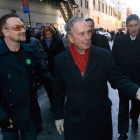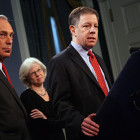During four decades of debate over the causes of black-male joblessness and unemployment, there have been two broad schools of thought. There were those who blamed the problem on the way the economy works, especially its racial contours and barriers, and those who attributed it to the way black men behave, to their culture.According to New York University political science professor Lawrence Mead, black joblessness is about a failure of low-skill black men to choose to work or live up to their employers’ standards when they do get jobs. “The immediate problem is work discipline, a willingness to cooperate, to be a reliable employee,” says Mead. “It’s collective psychology. It’s attitudes, and this is characteristic of poverty, where people want to work in principle.










